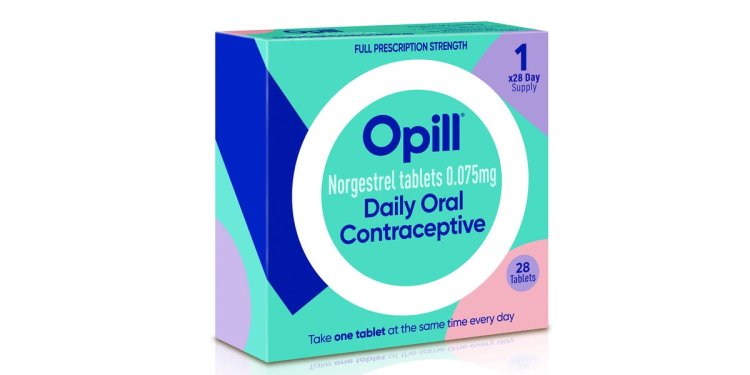You'll soon be able to get birth control without a prescription. Here's what you need to know.
Opill, the first oral contraceptive available for retail in the US, will be priced at $20 per month.

Perrigo/Associated Press
- Opill, an oral contraceptive, is now available without a perscription in the US.
- It is the first hormonal birth control available for retail and will expand access.
- The pill costs $20 per month and is being carried by Amazon, Walgreens, CVS, Target, and Walmart.
Birth control is about to be available without a prescription for $20 a month online or at your local pharmacy.
Opill, an oral contraceptive, is the first hormonal birth control to become available for retail in the US — and will hit store shelves in the coming weeks.
The pill has been on the market as a prescription birth control method since the 1970s, and was approved for retail by The US Food and Drug Administration in July. Amazon, Walgreens, CVS, Target, and Walmart, as well as most drugstores and supermarkets will carry the pill.
Perrigo, Opill's manufacturer, announced Monday that the pills will be sold for a recommended retail price of $19.99 for a month's supply. A three-month supply will cost $49.99, and people can buy a six-month supply online for $89.99.
There is no age requirement for purchasing the pill.
About 65% of women ages 15-49 use some form of contraceptive, research from The Guttmacher Institute found. In clinical trials, Opill was 98% effective at preventing pregnancy in people who used it as their primary birth control method for a full year.
Prescription-free birth control will expand access
The introduction of Opill to family planning aisles will lower barriers to birth control.
About half of all US pregnancies between 2015 and 2019 were unplanned, per the latest available data by The Guttmacher Institute. However, Guttmacher researchers said unplanned pregnancy rates are declining — largely because of growing contraceptive access.
Birth control is covered by most insurance and under The Affordable Care Act, but KFF (formerly known as Kaiser Family Foundation) found that about 25% of people pay some out-of-pocket costs because their preferred birth control method, prescribing provider, or pharmacy is out-of-network.
One in five uninsured people said they had to stop using a contraceptive method in 2022 because they couldn't afford it, according to KFF.
Since Opill is available without a prescription, people will no longer have to pay a doctor or pharmacist to access hormonal birth control. The cost of Opill itself may also be eligible for coverage under flexible spending or health savings accounts.
Free the Pill, a coalition focused on birth control access, called the introduction of Opill to stores "a landmark moment for public health nationwide."
Still, Project Director Victoria Nichols said the $19.99 cost for one month's supply might not be affordable for low-income people and people working to make ends meet. She urged policymakers to make sure non-prescription birth control is covered by insurance and assistance programs.
"Due to systemic inequities, cost can mean the difference between people getting effective contraception or going without," Nichols said in a public statement.
How does Opill work?
Opill is intended to be taken once-per-day, and takes 48 hours from the first dose to become effective. Users must take the pill at the same time every day.
The medication is progestin-only, meaning it does not contain estrogen. Progestin-only pills generally have fewer side effects and complication risks than birth control pills that use a combination of synthetic hormones, according to The American College of Obstetricians and Gynecologists. Bloating, minor headaches, and menstrual cycle changes are the most common Opill side effects.
Progestin-only birth control also carries a risk of ectopic pregnancy and can increase a person's risk for breast cancer, regardless of medical history.
"The addition of estrogen in a combined pill can carry additional risk," Dr. Tania Serna, an OB-GYN and complex family planning specialist at the University of California, San Francisco, told BI in July, "Just having the one hormone progestin is a very safe option for an over-the-counter product."
Opill is not recommended for people with a history of cancer or liver disease, per Perrigo. The pill also does not function as an emergency contraceptive or as prevention for sexually transmitted infections.
What's Your Reaction?




















